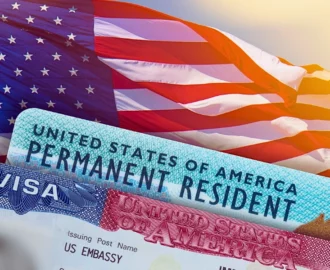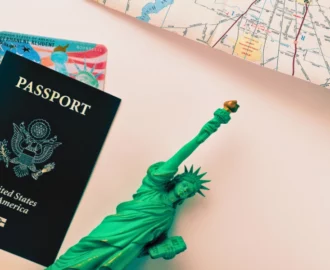Before signing an affidavit of support to accept financial responsibility for an immigrant, there are things potential green card sponsors need to know. Affidavits of support are legal contracts and are enforceable. People must meet income requirements to pledge financial support as green card sponsors. Financial sponsors legally guarantee that they will be responsible for providing financial assistance until the immigrants either become citizens or have worked for at least 40 quarters in the U.S. Sponsors will also be responsible for reimbursing the government for any public benefits their relatives use if they are unable to provide for themselves after they obtain green cards.
What Is an Affidavit of Support?
An affidavit of support is a document U.S. citizens can sign to accept financial responsibility for another person who wants to immigrate to the United States. The document is legally enforceable and allows the government to collect money from the signers if sponsored immigrants receive public benefits such as food stamps or Medicaid after they have been given green cards for a specific period of time. Affidavits of support are effective until one of the following events occurs:
- The immigrant or the sponsor dies;
- The immigrant works for at least 40 quarters in the U.S., which is approximately 10 years;
- The immigrant becomes a naturalized U.S. citizen; or
- The immigrant moves away from the U.S. permanently.
Because of the potential liability, people who are asked to sign affidavits of support should consider the decision carefully before they agree to do so. They must also meet specific financial guidelines before they will be eligible to sign an affidavit for a relative.
Financial Requirements
Potential sponsors who are not in the U.S. Armed Forces must have household incomes that exceed 125 percent of the federal poverty guidelines to submit an affidavit of support. If they are in the military, their income must be at least 100 percent of the federal poverty guidelines.
People who do not meet the minimum guidelines may still qualify if they add the cash value of their assets. The cash value of the assets must equal five times the difference between the minimum required income and the actual income unless an exception applies. There are exceptions for certain familial relationships, including spouses and children of citizens.




